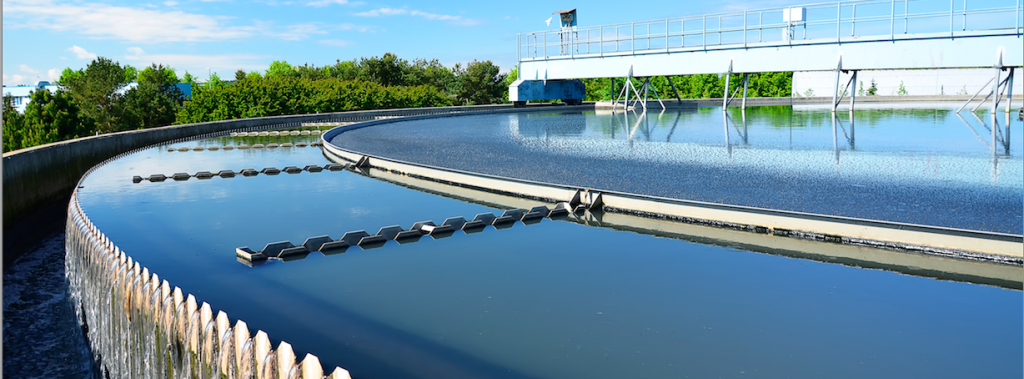Carbon neutral, climate resilient water systems, essential to meeting global challenges
Climate change is water change. Increasing global temperatures and changing weather patterns are directly impacting flood risks, and the availability and quality of source waters. While the water sector has to cope with the impacts of climate change, it also contributes up to 10 percent of carbon emissions locally from its energy consumption, as well as contributing other greenhouse gases such as nitrous oxides and methane emissions from wastewater systems.
Fortunately, there are many promising ideas and solutions to decarbonize the water sector.
The demand for energy by utilities, which already accounts for between 10 – 35 percent of operating costs, is rapidly increasing. This is driven by lower quality source waters, and more stringent regulations on treatment processes to achieve high water quality standards. Increasing energy use efficiencies to reduce energy consumption, and transforming wastewater treatment plants into resource recovery and energy production facilities, will be vital for a carbon neutral future.
Globally, approximately 80 percent of wastewater is discharged into nature untreated. The emissions from untreated sewage represent three times the emissions of average energy intensive conventional wastewater treatments. A massive expansion of wastewater treatment is needed but, equally, wisely selecting technologies for service expansion is critical to put us on the path toward carbon neutrality.
Yet, the climate agenda is not the only global agenda. The Sustainable Development Goals and the New Urban Agenda are also setting ambitious goals for our planet, and the future development of our cities. Water connects these global ambitions.It is clear that the water sector can own solutions that contribute its share of reducing emissions, and to meeting the internationally agreed target to cap the global temperature rise below 2°C.
Achieving 100 percent access to water and adequate sanitation, and reducing untreated sewage by 50 percent, can be met with low-carbon, climate resilient urban water systems, contributing to the climate agenda and building water sensitive, liveable cities for our communities. Sustainable urban water, as defined in the IWA Principles for Water Wise Cities, will be a cornerstone in meeting these goals.
Integration of the water and climate agendas presents opportunities to unleash climate financing for utilities working hand in hand with their cities. This would allow them to simultaneously adopt energy efficiency and climate-smart mitigation measures to adapt their existing assets, and to plan necessary future service expansions, integrated in urban design.
The Water and Wastewater Companies for Climate Mitigation (WaCCliM) project is developing ECAM, a carbon and energy accounting tool, to help utilities invest wisely for their combined water and climate change challenges. WaCCliM is guiding water and wastewater companies on a journey to energy and carbon neutrality, pro-actively preparing utilities for future Greenhouse Gas and environmental regulatory compliance.
Emissions from the water sector are typically assessed in a fragmented way under different urban sectors. WaCCliM provides a holistic approach, interlinking the different stages of the urban water cycle, enabling a specific carbon accounting for the water sector. By preparing now, water utilities working with WaCCliM are becoming sector leaders, and are seizing the opportunity to become more efficient and effective in an uncertain future.
Find out more about the WaCCliM project and roadmap: WaCCliM_Decarbonizing the Water Sector
Connect with on Twitter using #Climateiswater #WaterWiseCities
____________________________________
Join the WaCCliM Initiative and promote Low Carbon, Climate Resilient Water Systems!
Contact us to launch a WaCCliM initiative at info@wacclim.org
Become an endorser of the Principles for Water Wise Cities in Brisbane
Join us at 2 workshops during the Stockholm International Water Week:
Water solutions for resilience and sustainable growth of cities
Monday 29 August 14:00 – 15:30
Venue: Music Hall, Norra Latin at CCC
AT this session the IWA Principles for Water Wise Cities will be shared, linking to the COP, the SDGs and the New Urban Agenda.
Energy/resource efficiency and carbon reductions in water and sanitation services
Thursday 01 September 16:00-17:30
Venue: NL 461
At this session, Conagua will share the experience of the Mexican WaCCliM Pilot utility in implementing the WaCCliM roadmap.
Register for the World Water Congress & Exhibition in Brisbane and join us for a workshop on climate financing and a full day training on the ECAM tool:
Unlocking financial resources to decarbonize the water sector
Tuesday 11 October 15:30-17:00
Venue: Room 6
Assessing Climate and Energy Performance of Water and Waste Water Utilities
Sunday 08 October 08:30-15:30
Venue: Room 2
In this training, experts on water and waste water technologies will be trained to become international Water, Climate and Energy (WEC) advisors. Via hands-on tutorials and group discussions, participants will learn to use the Energy performance and Carbon Emissions Assessment and Monitoring (ECAM) tool.
The Water and Wastewater Companies for Climate Mitigation (WaCCliM) project, is a joint initiative between the Deutsche Gesellschaft für Internationale Zusammenarbeit (GIZ) and the International Water Association (IWA). This project is part of the International Climate Initiative (IKI). The German Federal Ministry for the Environment, Nature Conservation, Building and Nuclear Safety (BMUB) supports this initiative on the basis of a decision adopted by the German Bundestag.


